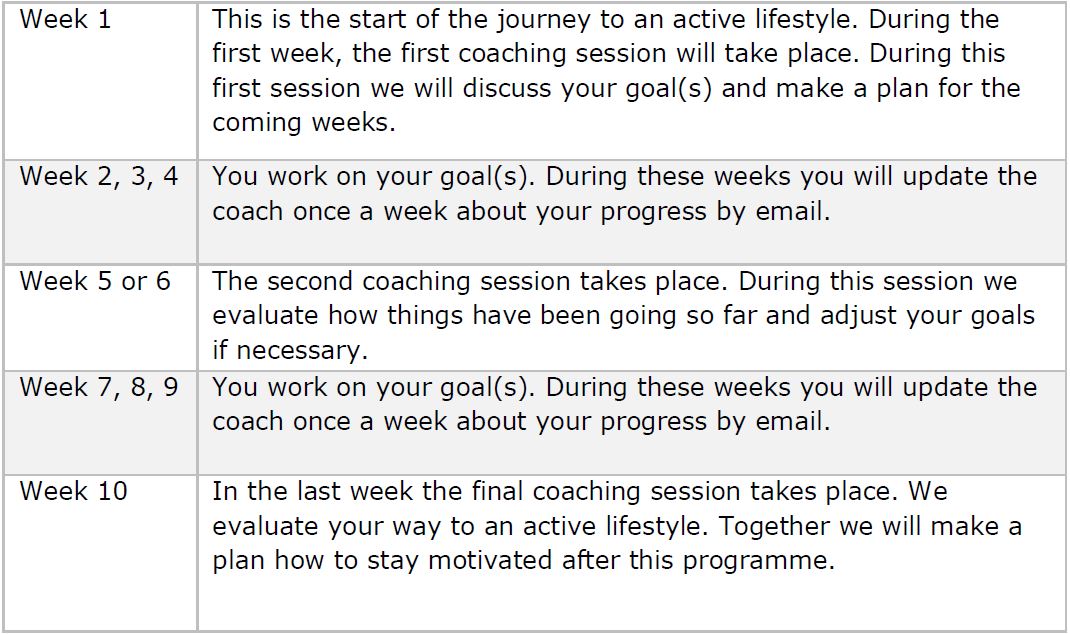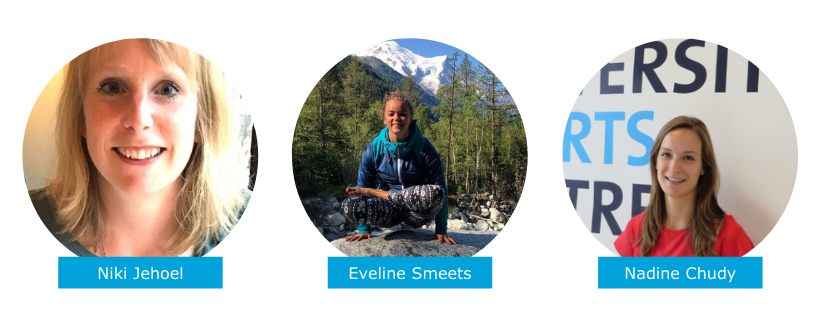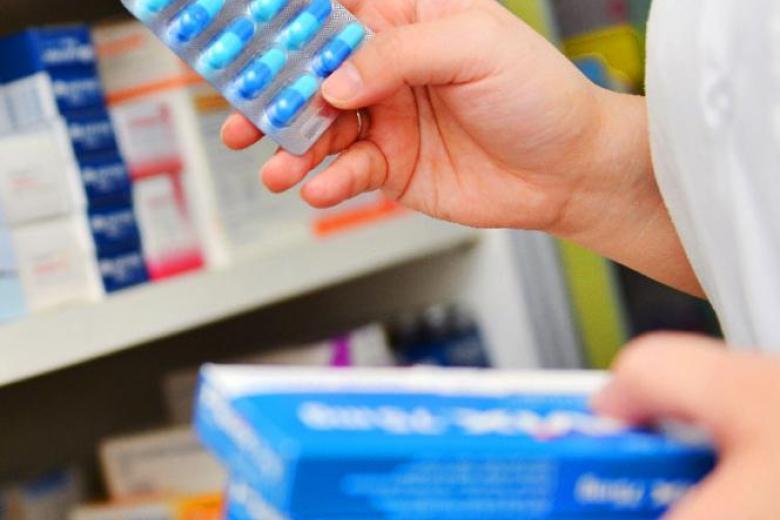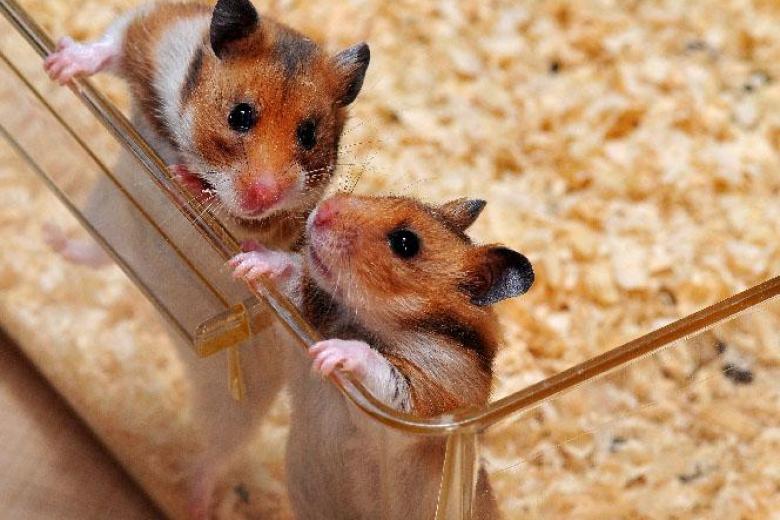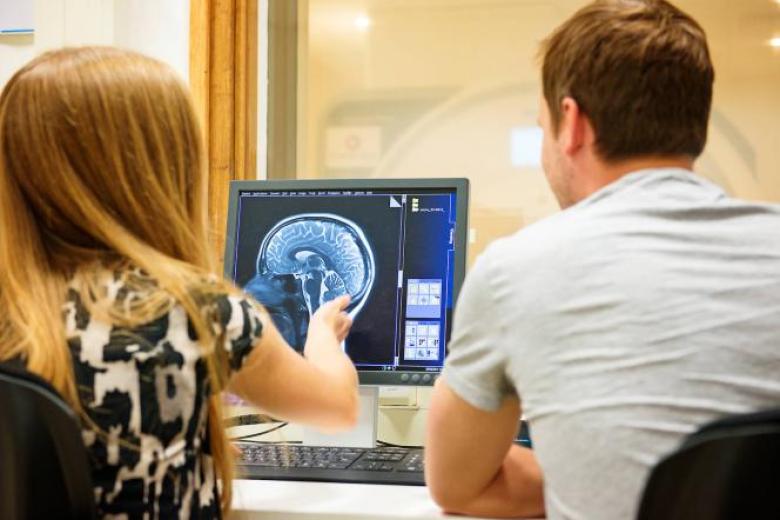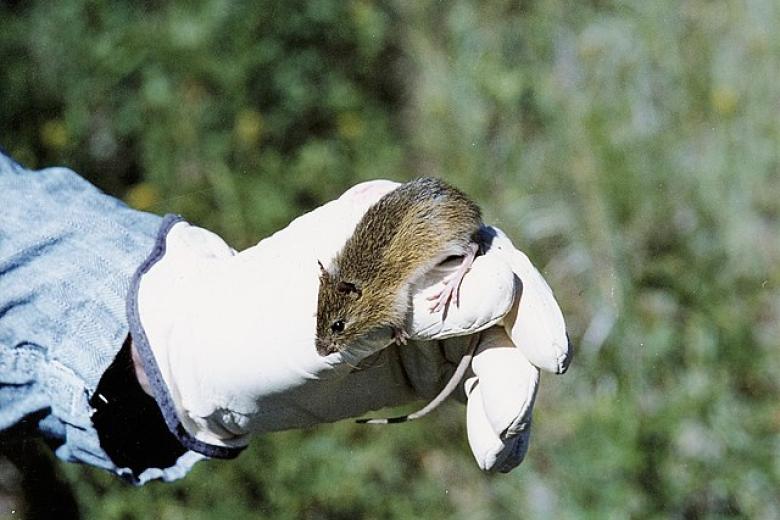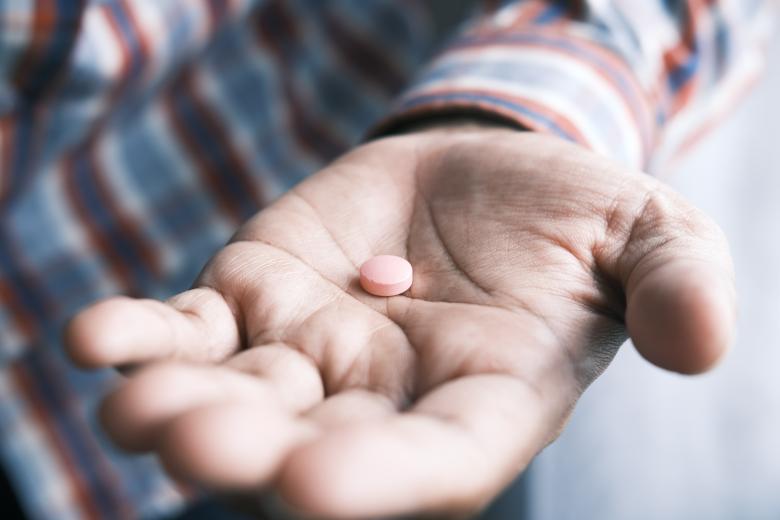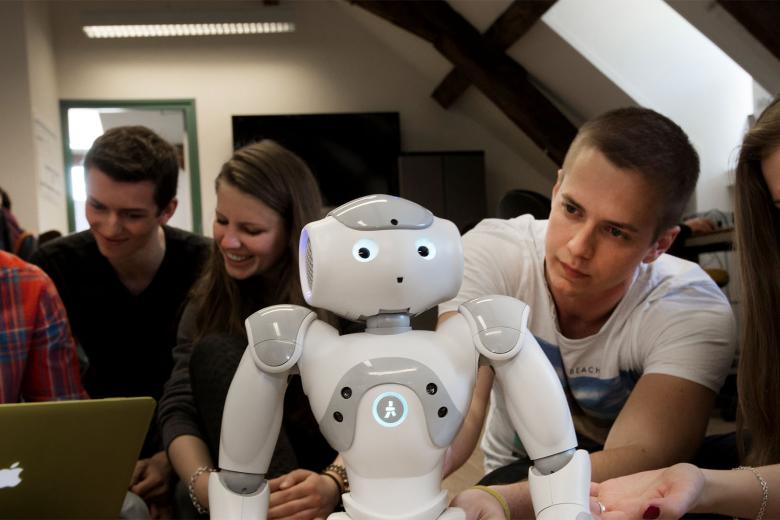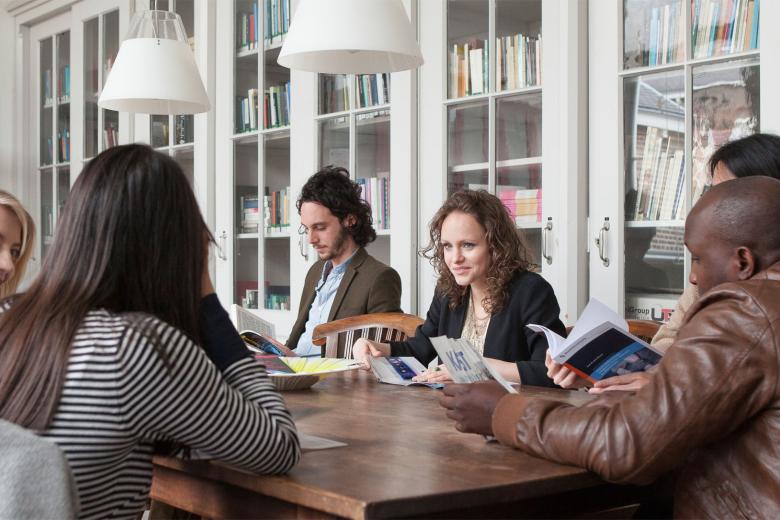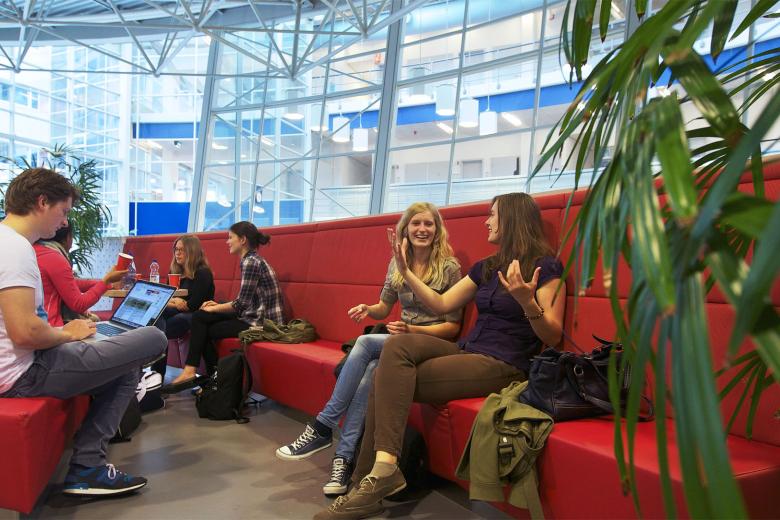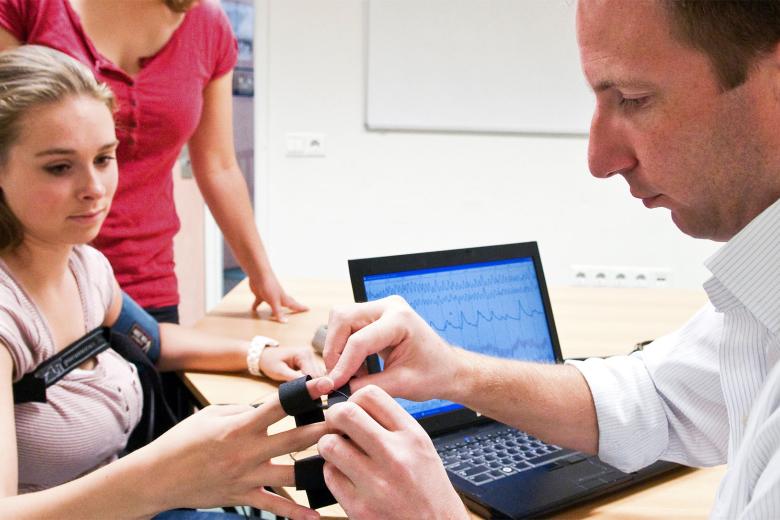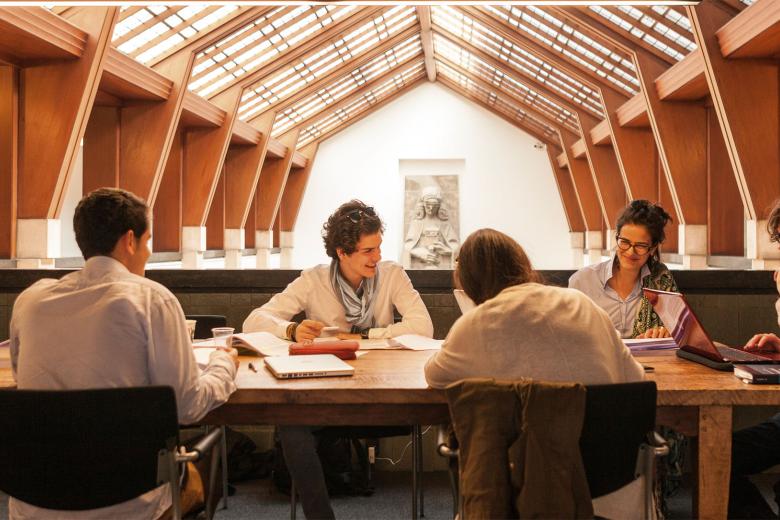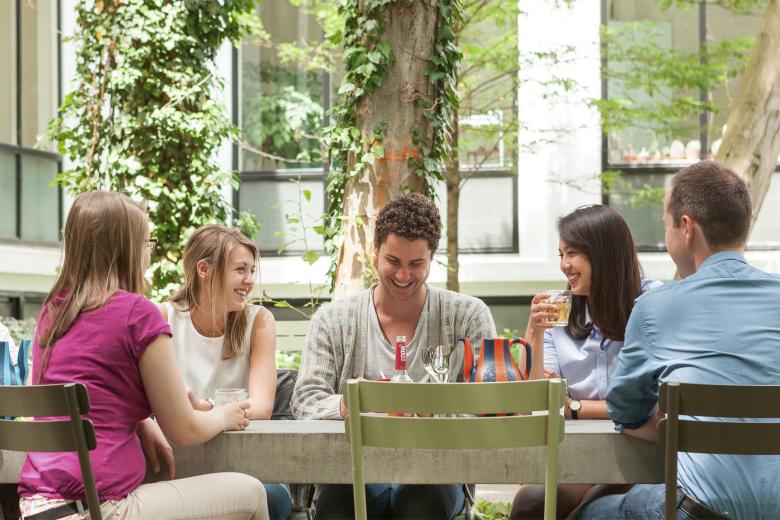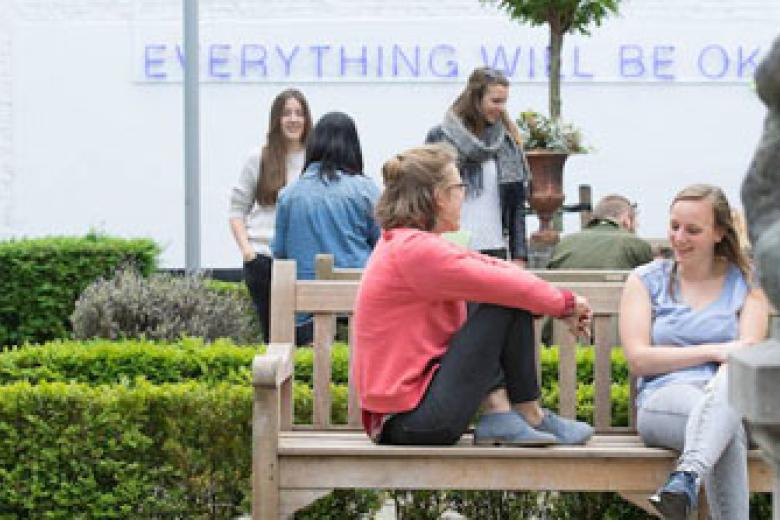On this page, you will find important details of the application process for the pre-master's (such as deadlines, admission requirements, required documents and application assessment) for the academic year 2025-2026. Check if you qualify for admission to this pre-master’s programme.
Programme content
The programme is composed of two dedicated pre-master courses and two key courses taken from the SBE bachelor’s courses. You will gain foundational knowledge in the field of study, train academic and research skills, and become familiar with Problem-Based Learning (PBL). Some of these courses are assessed by individual papers, others have a focus on group work.
Please note that the resits of period 2 courses take place in the second semester (period 4, April). Therefore, to ensure a smooth transition into the master’s programme starting in February, it is important to successfully complete your period 2 examinations in the first sit.
Study fee
The study fee for an SBE pre-master’s programme is half of the tuition fee for an SBE master’s programme, as the pre-master's programme lasts one semester.
Please note that the study fee for applicants with a non-EU/EEA university degree is yet to be determined. More information will be published as soon as possible.
Eligible students
- Students with a related university of applied sciences bachelor’s or master's degree (EU/EEA)
- Related UoAS programmes in the Netherlands
- Related UoAS programmes in Flanders
- Related UoAS programmes in Wallonia
- Related UoAS programmes in Germany
- Related UoAS programmes from other EU/EEA countries: please submit your application. The Board of Admissions will check your eligibility.
- Students with a related or unrelated university bachelor’s or master's degree (EU/EEA or non-EU/EEA)
Non-eligible students
- Students with a non-EU/EEA university of applied sciences degree
- Students with an unrelated EU/EEA university of applied sciences degree
Questions?
Please contact SBE Admissions Office
masteradmissions-sbe@maastrichtuniversity.nl
University degree
Do you have an EU/EEA or non-EU/EEA university bachelor’s or master’s degree in either a related or unrelated field to the pre-master’s programme? If so, you are eligible to apply. The Board of Admissions will check your eligibility.
Required documents if your GPA is 7.0 or higher
Does your country use a different grading scale? Please see the list of equivalent GPA calculations.
- Grades transcript of your bachelor’s programme
Upload an official grades transcript of all completed bachelor’s courses so far, including your overall GPA, plus a translation if the original is not in English. This document needs to be signed and stamped by your university. - GPA-statement: please use the standard format
- Copy of your diploma (if already obtained)
- Proof of English proficiency (if applicable)
- A recent passport picture
- A copy of your valid passport or your EU/EEA identity card
Required documents if your GPA is lower than 7.0
Proof of academic capabilities
Demonstrate your academic capabilities by choosing one of the options below:- Option 1: GMAT Exam with a test score of 515 or more
- Option 2: GMAT Exam (old version) with a total score of 550 or higher
- Option 3: GRE test with a score that is equivalent to the minimum GMAT scores.
More information about the GMAT/GRE test
- Grades transcript of your bachelor’s programme
Upload an official grades transcript of all completed bachelor’s courses so far, including your overall GPA, plus a translation if the original is not in English. This document needs to be signed and stamped by your university. - Copy of your diploma (if already obtained)
- Proof of English proficiency (if applicable)
- A recent passport picture
- A copy of your valid passport or your EU/EEA identity card
University degree
If you have a non-EU/EEA university degree (bachelor’s or master’s) in either a related or unrelated field to the pre-master’s programme, you are eligible to apply. The Board of Admissions will check your eligibility. The following documents are required for your application.
Required documents if your GPA is 7.0 or higher
Does your country use a different grading scale? Please see the list of equivalent GPA calculations.
- Grades transcript of your bachelor’s programme
Upload an official grades transcript of all completed bachelor’s courses so far, including your overall GPA, plus a translation if the original is not in English. This document needs to be signed and stamped by your university. - Motivation letter
- GPA-statement: please use the standard format
- Copy of your diploma (if already obtained)
- Proof of English proficiency (if applicable)
- A recent passport picture
- A copy of your valid passport or your EU/EEA identity card
Required documents if your GPA is lower than 7.0
Proof of academic capabilities
Demonstrate your academic capabilities by choosing one of the options below:- Option 1: GMAT Exam with a test score of 515 or more
- Option 2: GMAT Exam (old version) with a total score of 550 or higher
- Option 3: GRE test with a score that is equivalent to the minimum GMAT scores.
More information about the GMAT/GRE test
- Grades transcript of your bachelor’s programme
Upload an official grades transcript of all completed bachelor’s courses so far, including your overall GPA, plus a translation if the original is not in English. This document needs to be signed and stamped by your university. - Motivation letter
- Copy of your diploma (if already obtained)
- Proof of English proficiency (if applicable)
- A recent passport picture
- A copy of your valid passport or your EU/EEA identity card
With which degree are you applying?
Additional requirements: handling fee
Applicants for this pre-master's programme who received their previous education in a non-EU/EEA country will have to pay a handling fee. More information on this handling fee and how to arrange this payment can be found on the Handling fee web page.
How to apply
Ready to apply? The application and enrolment process consists of three phases. More information on each of these phases is provided below. Carefully read through the information provided and make sure to complete all tasks as soon as possible (and definitely before the indicated deadlines).
Phase 1: Apply via Studielink
To start the application process for this pre-master's programme, you first need to apply via Studielink. Studielink is the Dutch central organisation that keeps track of applications and enrolments at institutions of higher education in the Netherlands. In Studielink, you can apply by indicating which study programme at Maastricht University (UM) you would like to apply for, that you’d like to start the programme in September, what previous education you followed, and you might need to provide a number of other details.
Studielink offers two methods of signing in: with or without using DigiD:
- If you live in a Dutch municipality, you can only register using your DigiD. If you live in a Dutch municipality, but do not yet have a DigiD yet, you will need to request one (Apply for a DigiD).
- If you do not (yet) live in the Netherlands, you can register by creating a Studielink account (without DigiD). As your personal details will not have been verified through DigiD, UM will check your personal details.
Please note:
- You have to select your ‘starting moment’ in Studielink. Please make sure to select the right month and year in the dropdown-menu, so that you are applying for a start of the study programme in next academic year.
- You will receive an email from UM within 24 hours of having applied in Studielink. This email contains your username/UM student number and a link to create your personal password. You can use these login details to access the MyApplication portal, the online environment in which the rest of your application process will take place. The portal will provide you with a clear overview of all the tasks you need to complete, such as uploading documents and paying your study fees.
Phase 2: Admission
MyApplication portal
To allow UM to assess whether you qualify for admission to the study programme of your choice, you need to complete a number of tasks in the MyApplication portal, the online environment in which the rest of your application process will take place. All the tasks you need to complete, such as uploading certain documents, will be presented here in a clear overview. You can log into the portal using your username/UM student number and the password you have created (your login name and an explanation on how to create your own password are provided in the email you received from us after your application in Studielink).
Make sure you fulfil the tasks indicated in the MyApplication portal on time. This means that you should upload documents as soon as you have finalised them and/or have them in your possession. The sooner you complete a task, the sooner we can give you feedback if you need to add or correct anything. Please pay attention to the deadlines indicated, as they can differ per study programme.
Once you have completed all of your admission tasks, your application dossier is ready to be presented to the Board of Admissions. Depending on your programme, this will be done immediately when it is complete (rolling basis), or after an indicated deadline.
Required documents
During the application process for this pre-master's programme, you will need to complete a number of tasks for which you will often have to upload documents in the ‘MyApplication portal’.
Status updates about your application
From now on, you will receive important information and calls to action regarding your application in the message inbox in the MyApplication portal. We recommend that you regularly log in to the portal to make sure you stay updated. However, we will also notify you of important changes via the email address you provided to Studielink.
Phase 3: Enrolment
Once you have been offered a place in the pre-master's programme, you need to arrange your enrolment. The tasks you need to complete to be enrolled are listed in the MyApplication portal under ‘Enrolment tasks’. You can find a brief overview below.
Pay your study fee
Every applicant will need to pay their study fee. More information on how to go about arranging your study fee payment is provided in the task description in the MyApplication portal.
Once you’ve received an invite to pay your study fee, it is important that you indicate how you wish to arrange your payment (in Studielink). Do so on time (in any case before the start of your studies). Please also make sure that you pay (the first instalment of) your study fee in a timely manner. Otherwise, you won’t be able to start your studies.
Allow UM to verify your diploma
Dutch diplomas
Did you acquire the diploma on the basis of which you have been offered a place in your study programme in the Netherlands? Then DUO will pass on their verification of your diploma to UM. No further action on your part is required.
Non-Dutch diplomas
Did you acquire the diploma on the basis of which you have been offered a place in your study programme outside of the Netherlands? Then you will need to send a (certified) copy of that diploma.
Have you completed your previous education outside of the Netherlands and will you not receive your diploma before the start of your study programme? Then you can send a (certified) graduation statement.
More information on the requirements for a certified copy of a diploma and for a certified graduation statement, as well as the address these documents should be posted to, is provided in the task description in the MyApplication portal.
Make sure all application and enrolment tasks are fulfilled
UM can only enrol you if you have completed all the tasks in the MyApplication portal. Please make sure this is the case, so that your application and enrolment can be completed and you’ll be ready to start preparing for your studies as soon as possible.
Confirmation of Enrolment
When you have been enrolled for your study programme at UM, you will receive confirmation of this from UM (in the message inbox in the MyApplication portal) and from Studielink (by email).
UM email account
Before you start your studies, you will receive the login details for your UM email account. Your UM email address will be used for all correspondence about your introduction programme and the start of your studies. Your private email address will only be used to inform you about the application and enrolment process.
Master application
In order to start the master’s programme in February, it is important to successfully complete your period 2 examinations in the first sitting. When you fail the first sit in period 2, you will not be able to continue the master's programme in February.
The resits of period 2 courses take place in the second semester (period 4, April).
Are you a non-EU citizen requiring a visa/residence permit for study?
Please note that Maastricht University can only formally apply for your visa/residence permit if you have met all admission and enrolment requirements.
This means you have to have completed all admission and enrolment tasks in the MyApplication portal (except the ‘visa/residence permit’-task and the ‘send certified copy of diploma’-task) before we can send your application to the IND (Dutch Immigration and Naturalization Service).
We have to send the application to the IND before 1 July if you are starting your studies in September. Please note: a few pre-master and master programmes offer a start in February. If you’re study programme offers a start in February and you want to start your studies in February, we have to send the application to the IND before 1 December. You can find out if your study programme offers a start in February on the admission requirements web page of that programme (pre-master’s, master’s).
Therefore, we strongly recommend that you reconsider applying for this study programme if you are not sure that you will meet the following requirements before 1 July/1 December (if applicable in your situation):
- Having remedied all subject and/or language deficiencies (if applicable)
- Having qualified for admission to your study programme, including being selected (if applicable to your study programme) AND
- Having paid the tuition fee for your study programme
How do we assess your application?
When you want to apply or are applying to this study programme, it is useful to know how we assess your application. You can find more information about this in this section.
The Board of Admission evaluates the quality of your application by looking at your grades, motivation, relevant work experience, international experience and extra-curricular activities, and GMAT or GRE score (if applicable). Based on this information, the Board of Admission will decide whether you can be admitted to the programme or not.
Assessment happens on a rolling basis. This means that, once you submit a complete file with all the minimum required scores, it will be presented to the Board of Admission. We will not wait until the deadline before we present your file to the Board. You will receive a decision within 2-4 weeks after completion of your file.
